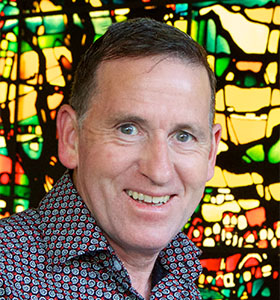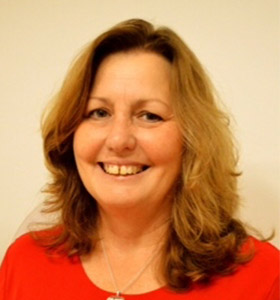

Depression, anxiety, delirium, addictions, distress… these are just some of the mental health issues registered nurses (RNs) are likely to come across, wherever they work in the health sector.
But instead of referring such patients straight on to a specialist mental health team as often happens, University of Waikato associate professor of mental health nursing Anthony O’Brien says a confident and “psychologically-informed” nurse is well-placed to respond and provide effective mental health support to that person.
But he hasn’t seen much of that over his 46 years in the field – something he hopes a new nursing degree embedding mental health skills from the start at the University of Waikato will change.
“Nurses tend to kind of put that to one side and say ‘this is somebody else’s role’.” Yet – without becoming specialists or therapists – nurses “can do more” with their role and scope, O’Brien says. “If we can produce nurses who are more well-informed about psychological aspects of health care, then they can do more with the role they have. It’s not changing the role exactly, it’s making it more inclusive of the whole scope of their practice.”
Such an approach could be anywhere from a primary health clinic to hospitals and acute settings such as emergency departments (EDs). In EDs, where many alcohol-related injuries present, “very brief interventions that are strategic and informed can be part of moving the person towards the recognition that they need to manage their drinking more safely”, says O’Brien. “It’s not about the nurse becoming a therapist or a specialist, a nurse might begin a conversation with the patient about what might be happening and what they might need.”
“Nurses tend to kind of put that to one side and say ‘this is somebody else’s role’.”
In communities or hospitals, if a patient expresses thoughts of hopelessness or despair, instead of referring on, “we would like nurses in that situation to go a little further with that person and explore what that’s about, without thinking they need to make an immediate referral to mental health services about potential suicidality.” They might have a conversation, to try and establish whether it’s an understandable response to what is going on in their life – illness or stress – or something that needs a more specialist response, O’Brien says. “That takes a bit of confidence and a bit of experience. Our part of that is to provide nurses, on graduation, with a sense of ‘this is what we do, this is part of our role’.”
O’Brien says about half of primary health care consultations are either for mental health reasons or had a significant mental health component – and nurses needed the skills to respond.
“Primary care is a big focus, but we also want to see it across hospitals and acute care, having mental health as part of their kete, or basket, of skills. They will come across people with a lot of mental health issues in all of those settings,” he said. “We don’t want them to be mental health specialists but we do want them to be able to recognise and respond to mental health needs in all clinical settings.”
Such nurses can play a connecting role between general and specialist practice as well as mental and physical health, suggests O’Brien. Poor mental health was often a barrier to accessing care for chronic illnesses such as diabetes or cardiovascular problems. Nurses able to respond to both would lead to better all-round health care.
‘Siloed’ approach
A mental health nurse since 1977 and nursing educator since 1983, O’Brien had long been concerned at the siloed approach to mental health care. But it wasn’t until the Government’s mental health inquiry, He Ara Oranga, in 2018 recommended a broader, more collaborative, approach – “to respond to mental health issues wherever they occur, rather than only within mental health services”, says O’Brien – that he and other Waikato nursing leaders began planning a new nursing programme.
University of Waikato nursing programme leader Cheryl Atherfold said that the DHB lead directors of nursing group had in 2019 also recommended better mental health and addiction training in nursing undergrad curricula. This would better serve New Zealand’s population, it said in a paper on nursing workforce priorities.1
Atherfold and O’Brien, along with others such as Waikato DHB chief nursing officer Sue Haywood, Waikato DHB nurse coordinator for cultural support Chris Baker and University of Waikato gerontology nursing professor Matthew Parsons, late in 2019 began developing a nursing degree with mental health and equity as core components. The hope is to better meet the health needs of Waikato’s highly rural and high Māori population, Atherfold said.
O’Brien knew he did not want mental health to be a typical standalone unit of four to six weeks studied further down the track. He wanted it to be embedded from day one. “We wanted to make mental health part of our overall approach, integrated across three years into all the courses and clinical practice.”
He acknowledges the extra demands this creates. Students must complete 1800 clinical hours across the three years – 700 more than the 1100 required by the Nursing Council – to gain the practical experience needed. The university has linked with eight or nine clinical nursing academics to work alongside the students in their various placements.

Students wanting to work in primary health will be able to do their primary mental health and addiction credentialing through Te Ao Māramatanga, the New Zealand College of Mental Health Nurses, before they graduate so they are ready to work. The programme leaders are also keen to open up post-graduate study options for those students who want to focus on specific areas like Māori or primary health.
“Put simply, the Waikato programme recognises the need to take a more holistic view of a person and their life when providing nursing services,” the university said in a press release.
Approved by the Nursing Council late in 2020, the programme began this year with 45 enrolments – although five have since dropped out, possibly due to the demands of higher clinical hours, he believes.
Despite this, O’Brien said, training nurses to be skilled in mental health should not be seen as extra work.
“We’re supporting our students to integrate mental health into their practice in a way that doesn’t make it an add-on or an extra task – it just become part and parcel of what they do as a nurse, so it’s kind of seamless.”
References
- DHB lead directors of nursing group. (2019; updated March 2020). Closing the Gaps in the New Zealand workforce; A concept paper: The nursing undergraduate pipeline (PDF, 472 KB).




